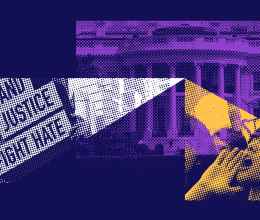
Every person must have access to safe and stable housing regardless of race, gender identity, sexual orientation, disability, where they were born, or whether they have children — it’s a fundamental right.
Housing is also foundational to health care, employment and education. When someone is evicted from their home, they may no longer be able to seek regular medical care, hold the same job or attend the same school. This disruption of nearly every aspect of daily life is further compounded by the fact that tenants facing eviction more than likely were not afforded an attorney while in housing court — nationwide, just 3% of tenants are represented by an attorney compared to 81% of landlords.
In New Jersey, where renters — not homeowners — comprise the majority of the state population, implementing policies that provide tenants with the resources and support they need to maintain their housing is prerequisite to systemic equality.
During the height of the COVID-19 pandemic, New Jersey had put in place a slate of eviction protections — including an eviction moratorium and accompanying legislation that ensured no one could be evicted for non-payment of rent — to help people remain in their homes and further enable social distancing, as well as provide relief to property owners in the form of rental assistance paid to landlords on behalf of struggling tenants. Even though many of these pandemic housing policies are no longer in place, they built a blueprint for further action New Jersey must take to provide access to fair housing for all.
In an important step forward, New Jersey created the Comprehensive Eviction Defense and Diversion program providing access to legal representation and resource navigators for tenants throughout the state, as well as significant funds for rental assistance. The costs of eviction — including increased homelessness and decreased access to career and educational opportunities — are far too great, especially in communities of color, who have historically faced the brunt of housing discrimination.
It wasn’t until the Fair Housing Act — Title VIII of the Civil Rights Act of 1968 — that federal law protected against housing discrimination based on sex, race, religion or country of birth. Advocating for fair housing was rooted in the greater civil rights movement because expanding housing protections is fundamental to racial and social justice. That was true then, and it remains true now.
But to support all tenants’ needs, New Jersey must allocate additional funding to fully realize the vision of the Comprehensive Eviction Defense and Diversion program, including a right to counsel. This is why the ACLU-NJ is working to develop a comprehensive analysis of the costs and benefits to tenants, property owners, the community, the courts, and the state of providing access to counsel for tenants facing eviction.
Concrete data on the economic investment necessary for the program to thrive is important, but it is only one part of a much bigger whole. It must be considered in tandem with the experiences of those most impacted by evictions and unstable access to housing across the state, while also seeking the input of the program’s legal service providers.
Fully funding and codifying the Comprehensive Eviction Defense and Diversion program and its commitment to effective representation in eviction matters would make New Jersey just the fourth state with a right to counsel program for tenants facing eviction. The ACLU-NJ calls on lawmakers to prioritize the program, because better housing means brighter futures.
This piece was originally published on NorthJersey.com, part of the USA TODAY Network.



